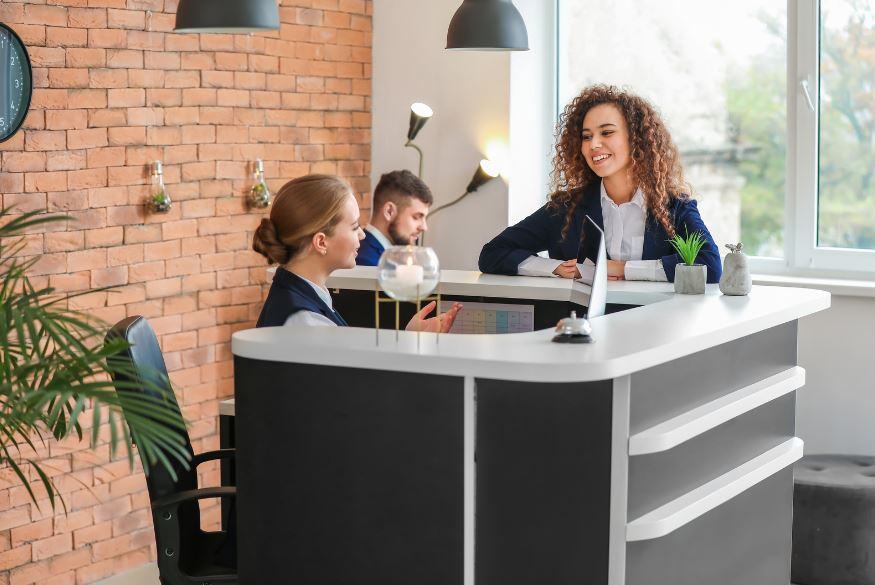
Empowering Non-Native English Speakers: A Critical DEI Strategy for Business Success
Introduction It’s part of the mission of Diversity, Equity, and Inclusion (DEI) programs to listen to the experiences ...

Table of Contents
Navigating the nuances of language can be challenging when it involves interactions between non-native and native speakers. Understanding the dynamics at play may help make you, the native speaker, more accommodating to non-native speakers you interact with.
Jessie Miller, Global LT’s VP of Learning Operations, is an expert when it comes to navigating language. With a graduate degree in Linguistics and experience as a former language teacher, Jessie has used her extensive knowledge of Second Language Acquisition theory to transform learners’ lives and bridge language barriers. Here’s what she has to say about helping non-native speakers with listening comprehension.
“Foreigner Talk” is a known phenomenon in linguistics and is fairly universal. Native speakers often adjust their speech to non-native speakers to simply speak louder, slowly, and “simply”. Typically, volume is not the issue and while speaking more slowly can help in some cases, it can become challenging for native speakers to know how to slow down so that their speech is more comprehensible. Often, there is a perception that using shorter words and phrasal verbs automatically simplifies speech for the non-native speaker, but this is also problematic and could be making matters worse. As a language teacher, you become acutely aware of ways of speaking that can assist a non-native speaker with listening comprehension. These are a few ways I utilize every day.
When I use a term in English that I feel could present a challenge, I often say the word and then immediately define it or give another word directly after that has the same meaning so that if one word is unfamiliar, the second word could provide clarification. Examples might be, “She’s driven. She’s so motivated to win,” or “That’s shady. That’s suspicious.”
Speak to an Expert About Language or Culture Training
As native English speakers, we often believe that using “shorter” words helps non-native speakers because this is how we simplify our speech for children, typically the only other group of people we encounter who have not reached full fluency in English yet. The language that children are much more likely to be exposed to is informal and consists of shorter words and phrasal verbs. Their vocabulary expands and they gain more formal registers as they age.
On the other hand, most people who learned language as an adult learned the opposite in traditional academic settings, which places an emphasis on learning the exact verb for a given situation and not phrasal verbs. Frequently, the verb in the phrasal verb is one that could have many meanings and the preposition that accompanies it doesn’t carry enough meaning to help the non-native speaker. For example, using the verb “to identify” may be more helpful than using “to pick out”. Non-native speakers who learned the language primarily in schools will likely have learned the former. This is especially helpful for non-native speakers whose native languages had contact with Latin and could potentially find a familiar morpheme in the term you use!
Using your facial expressions and hand gestures requires little additional mental effort and can be such a helpful tool for the non-native speaker listening to you. It provides contextual clues so that they can follow along with the tone of what you are saying and can let them know how to react with their own facial expressions.
Having a conversation with a non-native speaker can challenge the native speaker to be more intentional in their speech, but with a little extra effort, you can help non-native speakers immensely. You’ll become increasingly adept at using different words or phrases or incorporating hand gestures and eventually, it will be second nature to you.
If you want to learn a new language, let us know! Our teachers are well-versed in the nuances of language learning and are ready to help you get started.
This blog post was written by Jessie Miller, VP of Learning Operations

Introduction It’s part of the mission of Diversity, Equity, and Inclusion (DEI) programs to listen to the experiences ...

Introduction The need for frontline employees who speak foreign languages is greater than ever. In the US, about 68 ...

Being multilingual is a powerful tool beyond the ability to communicate with others - it opens doors to new cultures, ...
Please fill out the form below for more information or to schedule a consultation.